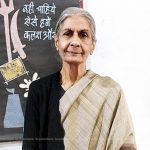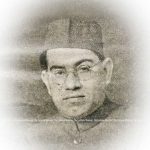Proud to be Indian
Talking to those who know better, The Lucknow Observer finds that patriotism is a double edged sword
Even as the country prepares to celebrate yet another Independence Day, it might well be useful to ponder on what is patriotism. Is patriotism only love for the homeland, or also fear of the other and hatred for another’s homeland?
Ursula K. Le Guin writes in The Left Hand of Darkness that patriotism is political, not poetic. Images of hate, rivalry, and aggression also appear before her at the mention of the word patriotism. The act of patriotism becomes a negative emotion when the supporter of one’s own country also favors jingoism, chauvinism, nativism, and xenophobia.
For example when a Telangana Bhartiya Janata Party (BJP) leader calls Sania Mirza, country’s tennis champion a Pakistani daughter-in-law, it seems like an attempt to spread dislike against both a neighbouring country and a fellow citizen. Sania is brand ambassador of Telangana, the newly formed state within the former Andhra Pradesh and the politician passes the hurtful remark probably because Sania is married to a Pakistani?
Both Sania and the taciturn Telangana politician are Indian and who is anyone to say that anyone of them is more patriotic, or a lesser Indian than the other?
War mongering
During times of stress like war, patriotism does bring most citizens of one country very close to each other but this happens often at the cost of hatred towards citizens of other nations. Apart from instilling a sense of pride in human beings for their homeland, patriotism also has the power to blind citizens of one nation to the goodness and humanity of citizens of another nation.
On this Independence Day it might be useful to question as to why human beings must be forced to choose between country and humanity and how to celebrate individual freedom without fear and hate of other people and other countries?
Before India became a nation state, it was one continuous geographical region populated with different communities. Rulers of different fiefdoms did go to war with each other but the heart of ordinary people was not filled with hate for others belonging to a different community.
Particularly populations living on the border, between one community and another continuously shared language, culture and cuisine with each other. Like the similarity in language, looks and food habits of people of east and west Punjab, east and west Bengal and the Pathans of Pakistan and Afghanistan.
It is life in the hinterland of every community, however, that has always been less open and far more rigid than on the periphery.
Strict Borders
Borders were not strict and the crossing into one neighborhood from another was never a matter of life and death for ordinary human beings. There was always a lot of give and take between people of different communities within the region and with neighbours outside of South Asia. Bloodshed was mostly caused by quarrelsome rulers, kings and chieftains who constantly coveted each other’s power and territory and fought wars mainly over land, women and religion in order to multiply their power and wealth.
However, in this regular tug of war for power, prestige and plentiful, life for ordinary people had remained comparatively unaffected.
This is before European ideas influenced South Asia in the 19th century and communities were torn apart in the name of religious and linguistic homogeneity. While it was a good idea to get rid of monarchy, the tearing apart of communities from each other played havoc with the life of ordinary citizens. In the late 18th century the French revolutionaries had decided to do away with monarchs. This idea had greatly transformed the life of people in Europe. Equality, fraternity and liberty was the new mantra of the masses and had infused romanticism in the life of ordinary people whose life under monarchs was mostly a pathetic existence full of hopelessness. Nationalism was seen as a solution to save ordinary individuals from poverty and a lack of personal freedom.
A romantic view of a modern nation state had gripped the European mind that nursed nationalism on the continent as its new found religion. Dynastic and religious allegiance was done away and mass based politics gave way to traditional elite politics.
It had taken decades for revolutionary ideas to mature in Europe and for monarchy to make way for the modern nation state. This transformed politics on the continent forever. United under medieval monarchs, different ethnic groups now broke away to demand a homeland based on racial, ethnic and linguistic lines all over Europe. The cry for independence from kingdoms by different interest groups was loud and clear against a common monarch. The rift between Catholic and Protestant populations widened as well.
Nation state
A nation state was increasingly conceived as a homeland of people limited to one ethnic, cultural, religious, or identity group. The demand by minorities was considered a bit of a nuisance by more multi national but single states.
Polish people wanted freedom from Russian rule and Serbs and Magyars rebelled against the Austrian empire. And most of these ethnic groups dreaming of a nation of their own and practicing different schools of Christianity did not like the idea of sharing the new homeland with the Jewish population scattered all over the continent.
This made Theodor Herzl, Hungarian born Jewish nationalist, to organise the first Zionist Congress in Switzerland and to demand a nation state as home for all the dispersed Jewish populations, in Palestine.
The world watched as Europe modernised itself but almost on primitive premises perhaps because it seemed like the only idea at that time to combat many a cruel king. The idea of nationalism, therefore, spread like wild fire and threatened empires in other parts of the world as well.
By mid 20th century hundreds of new countries were carved out of former empires as king after king caved in to national demands of independence and colonial masters collapsed all over the globe.
Nationalism was the need of human beings nearly a century ago. Nationalism is followed by globalisation and today in the 21st century nationalism is seen as dividing people and making long term enemies of one nation against another.
The need of the hour is to unite populations for the larger good of the globe even as communities continue to live in different nations but with as little hate and harm in their heart for each other.
Nationalism is…
Nationalism is a belief, creed or political ideology that involves an individual identifying with and feeling attached to one country. Nationalism is clubbed with patriotism which is the art of social conditioning of citizens to support a state’s decision and actions.
One of the most fundamental human desires is for belonging to another human being, community and country. When politics and society exploits this psychological need of human beings to organise themselves into distinct groups based on an affinity of birth, it may be called patriotism. This psychological need to belong of all human beings is fueled by forcing attachment to national symbols like myths, national flags and national anthems.
Academics explain that the form of nationalism may be modern, the spirit of sticking only to one’s own is a very primordial sentiment.
Who is Herder?
The term nationalism was first used in the late 18th century by Johann Gottfried Herder, German philosopher who gave Germans new pride in their origins, and proclaimed a national message within the sphere of language, which he believed determines national thought and culture.
The political development of nationalism and the push for independence from monarchies culminated in ethnic revolutions of Europe. Herder developed a form of ethnic nationalism in which the state derived its political legitimacy from historic cultural or hereditary groups. The underlying assumption is that every ethnicity should be politically distinct. Herder attached exceptional importance to the concept of nationality and of patriotism.
He said that he who has lost his patriotic spirit has lost himself and believed that in a certain sense every human perfection is national.
Racist
Today many read Herder’s worldview as unmistakably racist and even consider him anti semitic and forerunner of modern racism. He did not seem to like the Chinese and said that had Greece been peopled with Chinese, Greece would never have existed.
An intense German nationalist, Herder predicted the Slavic nations would one day be the real power in Europe.
Herder stressed the centrality of language to create a dangerous divide amongst multilingual diverse societies even within a single white state. Herder saw language and cultural traditions as a bond that create a nation where people are familiar with the same dance and music
He saw the Jews as a parasitic growth on the stem of other nations, a race of cunning brokers all over the earth. According to Herder the Jews have caused great evil to many ill-organized states, by retarding the free and natural economic development of their indigenous population!




